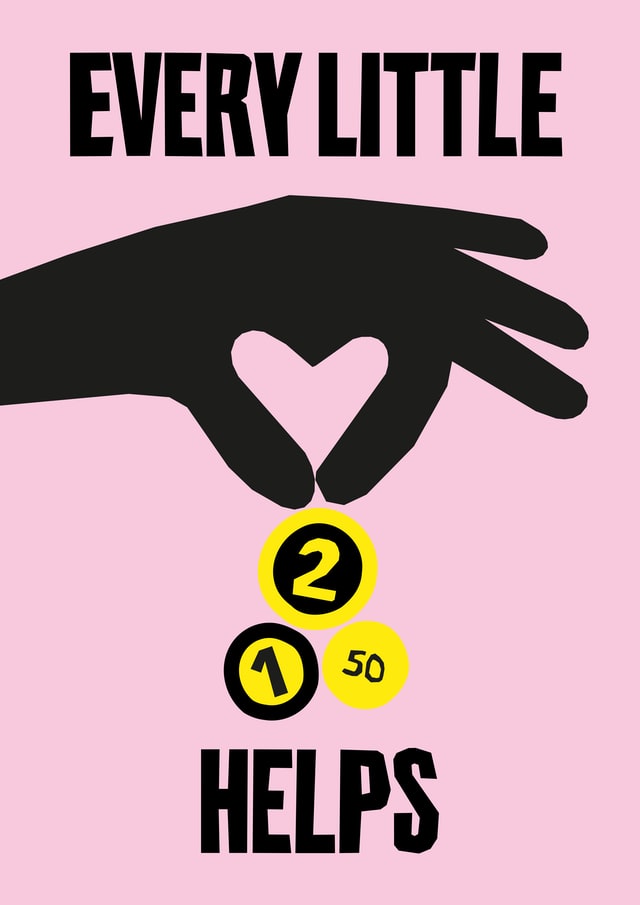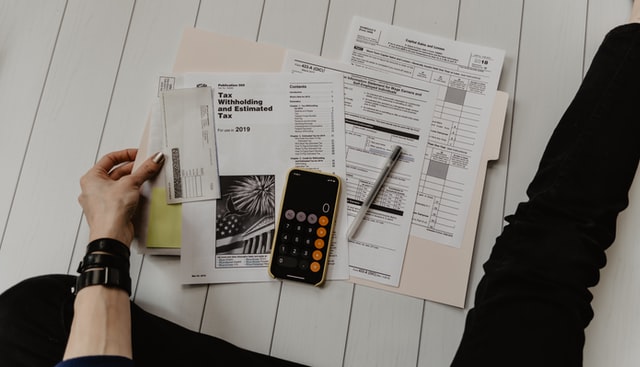THE LATEST AND GREATEST SUPPORT AVAILABLE FOR SMALL BUSINESSES AND THE SELF-EMPLOYED
With the outpour on information on the Coronavirus (Covid-19) constantly changing, in particular, what help is out there for small businesses and the self-employed, we thought it opportune to set these out for you and to update you as and when updates are needed:
JOB SUPPORT SCHEME FOR BUSINESSES FACING REDUCED DEMAND (REPLACEMENT FOR CURRENT FURLOUGH SCHEME)

In September 2020, the government announced a new Job Support Scheme. It replaces the furlough scheme which ends on 31 October.
The Job Support Scheme starts on 1 November and will last six months. It is designed to protect “viable” jobs in businesses facing lower demand this winter because of Covid-19.
Businesses will pay employees for time worked, with the cost of hours not worked split between the employer, the government (through wage support) and the employee (through wage reduction). The government’s contribution is capped at £697.92 a month.
Employees must work at least a third of their normal hours.
The government says this will ensure employees earn a minimum of 77 per cent of their normal wages.
HOW DO I GET THIS SUPPORT?
You do not need to have used the furlough scheme to take part. To take part you need to have a US bank account and a UK PAYE scheme.
Larger businesses will need to have a financial assessment test, but there’s no such requirement for small and medium-sized businesses.
Employees need to have been on the payroll on, or before, 23 September 2020.
The scheme will be open from 1 November 2020 to the end of April 2021.
You can make a claim online through gov.uk from December and you’ll be paid on a monthly basis.
Grants are paid in arrears. This means that a claim can only be submitted in respect of a given pay period, after payment to the employee has been made and that payment has been reported to HMRC via an RT1 return.
Find out more about the Job Support Scheme at www.gov.uk
JOB SUPPORT SCHEME FOR BUSINESSES FORCED TO CLOSE
After announcing the Job Support Scheme at the end of September, the Chancellor expanded it in October to offer more help for businesses that are forced to close in local lockdowns.
This part of the scheme will pay your employees two thirds of their normal salary, up to £2,100 a month, if you close your doors an they can’t work for a week or more.
Unlike the previous blanket furlough scheme, it targets businesses that close in specific areas. If a business is able to remain open but faces reduced demand, they can still access the Job Support Scheme measures described above.
Businesses need to pay employer National Insurance and pension contributions.
HOW DO IT GET THIS SUPPORT?
This is part of the Job Support Scheme, so the application process is the same as described above.
LOCAL RESTRICTIONS SUPPORT GRANT (LRSG) FOR BUSINESSES FORCED TO CLOSE
On 9 October, Rishi Sunak expanded the funding available through the Local Restrictions Support Grant (LRSG).
The grant will help businesses in England that were open and trading as normal before being forced to close for at least two weeks because of lockdown restrictions.
You need to be paying business rates on your premises, but local councils may also offer grants to businesses that don’t pay business rates at their discretion.
Small businesses which have properties that have a rateable value of between £15,001 and £51,000 will get £2,000 a month.
Larger businesses can claim £3,000 a month.
As this is a grant, the money does not have to be paid back.
HOW DO I GET THIS SUPPORT?
You can apply by visiting your local council’s website.
BOUNCE BACK LOAN SCHEME FOR SMALL BUSINESSES

The Bounce Back Loan Scheme (BBLS) provides loans between £2,000 and £50,000, with the government giving accredited lenders a 100 per cent guarantee for the loans they pay out.
The government is also picking up the bill for any fees and interest for the first year, and small business owners won’t need to repay anything towards their Bounce Back Loan in the first 12 months.
After the first year, borrowers will have to pay “2.5 per cent interest for the remaining period of the loan”, according to the government website.
In September 2020, the government announced changes to the BBLS, designed to give businesses more flexibility in how they repay the loan. These include:
- New and existing loan can be repaid over 10 years, rather than six.
- You can take one payment holiday lasting six payments to use this option.
- You can choose to make interest-only repayments three times over the course of the loan, with each interest-only period lasting up to six months.
The government is calling these changes a “pay as you grow” scheme for businesses.
But remember that any extensions to your loan, as well as payment holidays or interest-only payments, mean that you’ll end up paying more interest overall.
HOW DO I GET THIS SUPPORT?
There are currently 11 lenders taking part in the scheme – you can apply for a Bounce Back Loan on the government website.
Read more about Bounce Back Loan Scheme (https://www.gov.uk/guidance/apply-for-a-coronavirus-bounce-back-loan)
In September 2020, the government extended the deadline for applying for a new Bounce Back Loan from 4 November 2020 to 30 November 2020.
£750 MILLION FOR INNOVATIVE SMALL BUSINESSES
Small to medium-sized enterprises (SMEs) focused on research and development will have access to £750 million of grants and loans, according to the Treasury. That is in addition to the Future Fund – £500 million of loans being set aside for high-growth firms.
Rishi Sunak, Chancellor of the Exchequer, said: “Britain is a global leader when it comes to innovation. Our start-ups and businesses driving research and development are one of our great economic strengths and will help power our growth out of the coronavirus crisis.”
HOW DO I GET THIS SUPPORT?
The funding will be available through national innovation agency Innovate UK and its grants andloan scheme. If you’re one of the agency’s existing 2,500 customers, you’ll be able to opt into a scheme fast-tracking up to £200 million of grant and loan payments. On top of this, £550 million of extra support is being made available for existing customers.
If you’re a research and development intensive small business but not an existing Innovate UK customer, you may still benefit from £175,000 of support they are setting aside for around 1,200 firms.
The first payments started in mid-May, and there is more information on the government website.
Continuity grants were available until 29 May 2020, but continuity loans are available until all the money is allocated, or 31 December – whichever is the earlier.
CORONAVIRUS BUSINESS GRANTS
The Chancellor made £25,000 cash grants available to retail, hospitality and leisure businesses with a rateable value between £15,001 and £51,000.
He also provided one-off grants of £10,000 to smaller businesses. To qualify for the £10,000 grant your business needed to have a rateable value of £15,000 or less, or you needed to already be getting Small Business Rate Relief (SBBR). Rural Rate Relief (RRR) or tapered relief.
HOW DO I GET THIS SUPPORT?
This scheme closed on 28 August 2020. Unclaimed money was returned to the government.
Any questions should be directed to the local authority.
BUSINESS RATES HOLIDAY FOR TAX YEAR 2020-21
The government is temporarily cancelling business rates for all retail, leisure, and hospitality businesses, in response to the Covid-19 outbreak. The business rates holiday applies in England for the tax year 2020-21 for:

- Shops
- Resturants, cafes, bars, pubs
- Cinemas, live music venues
- Assembly or leisure properties, like sports clubs, gyms and spas
- Hospitality properties such as hotels, guest houses and self-catering accommodation
HOW DO I GET HOLD OF THIS SUPPORT?
You do not need to do anything to get this support – it will be applied to your April 2020 Council Tax bill. Your local authority may need to reissue your bill to remove the business rate charge. They’ll do this automatically, as soon as possible.
Your can use the government’s business rates calculator to find out the amount you’ll no longer have to pay this year.
BUSINESS RATES HOLIDAY FOR NURSERIES
Nurseries in England will also get a year off paying business rates for the tax year 2020-21.
To be eligible, the building needs to be occupied by providers on Ofsted’s Early Years Register, and completely or mainly used to provide the Early Years Foundation Stage (care and education for children up to age 5).
HOW DO I GET THIS SUPPORT?
Like retail, leisure and hospitality businesses mentioned above, you don’t need to do anything to get this business rates holiday if you’re eligible. Your local council will automatically apply the discount if you are eligible.
PROTECTION IF YOU CAN’T PAY YOUR COMMERCIAL RENT
The government announced that commercial tenants who can’t pay their rent as a result of the Covid-19 outbreak will be protected from eviction.
In June the government extended its initial ban on evictions until the end of September 2020.
HOW DO I GET THIS SUPPORT?
Commercial tenants and landlords are being encouraged to come to voluntary arrangements on repayment.
The government introduced a new code of practice in June, designed to help struggling businesses and landlords work together on rent payments issues.
Gov.uk makes it clear that this is protection from eviction if you cannot pay your commercial rent right now, because of the pandemic. It is not a rent holiday, and commercial rent right now, because of the pandemic. It’s not a rent holiday, and commercial tenants will still be liable for the rent.
CORONAVIRUS BUSINESS INTERRUPTION LOAN SCHEME (CBILS)
Under a new coronavirus business loan scheme, if you have a turnover of up to £45 million you can apply for loans, overdrafts, invoice finance and asset finance of up to £5 million. The government will part with their cash by guaranteeing up to 80 per cent of any losses, and there will be no upfront loan charges. On top of this, the government will cover the first 12 months of interest payments.
The government has extended the CBILS to all viable small businesses affected by the pandemic – not just businesses that can’t get regular commercial financing. It has also banned lenders from requiring you to use your own property or savings to guarantee a loan under £250,000.
Besides making operational changes to speed up lending approvals, the Chancellor, along with the Governor of the Bank of England, Andrew Bailey, has written to banks asking them to support small and medium-sized enterprises in any way they can. This support includes making sure interest rates are reasonable and making sure the benefit of the government guarantee to those borrowing under the CBILS is passed on.
In September 2020, the government announced that lenders can now extend the loan term up to 10 years (previously it was six).
HOW DO IT GET THIS SUPPORT?
The scheme, delivered through the British Business Bank, is now available through participating lenders.

Your business needs to:
- Be based in the UK
- Have an annual turnover of up to £45 million
- Have a borrowing proposal the lender would consider viable, if it wasn’t for coronavirus
- Have been adversely impacted by coronavirus (you can self-certify for this)
All major banks will offer this scheme, according to the government website. It advises speaking to your own business banking provider now, to ensure you get any cash you’re eligible for as quickly as possible.
In September 2020, the government announced that businesses will now have until 30 November to apply for the CBILS.
Have you already applied for any of the support mentioned above? If so, what’s been your experience? Share your thoughts and experiences in the comments below.

